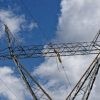Electricity provides immeasurable value to society by powering homes, businesses, and industry. However, the same energy that enables modern life also poses risks of shock, electrocution, burns, and explosions if improperly handled. Working with electrical installations demands caution and strict safety protocols to prevent severe injuries or fatalities. This guide covers fundamental personal safety principles, procedures, training, and protective equipment for individuals operating around electrical systems. Following these best practices is essential for preserving your wellbeing.
Understand the Hazards
The first step in electrical safety is recognizing potential hazards and how they can harm you. Electric current passing through the body can cause everything from mild tingling to cardiac arrest. The main dangers include:
- Electric Shock – Current flows through tissues, causing muscular contractions and nerve stimulation. Can lead to falls, loss of muscle control, and internal injuries.
- Electrocutions – Very high currents passing through the heart can cause ventricular fibrillation, stopping the heartbeat. Often fatal.
- Burns – Electrical energy converts to heat, which can cause severe external or internal burns.
- Explosions – Electrical faults can ignite flammable materials like gases, dust, or chemicals. Pressure waves from blasts can cause trauma.
- Fire – Overheated conductors and electrical equipment can ignite surrounding materials. Causes property damage and smoke inhalation hazards.
These mechanisms vary based on factors like current magnitude, path through the body, and duration of contact. Minimizing body current is the basis for most electrical safety principles. Understanding how electric shocks occur enables developing appropriate defences.
Isolate and De-energize Circuits
The most direct hazard control is physically separating yourself from live electrical components. This is achieved by de-energizing circuits and isolating conductive elements prior to service. Follow lockout/tagout procedures to interrupt current and prevent re-energization. For example, open disconnect switches, remove fuses, trip breakers, and ground circuits. Lock boxes and affix warning tags. Double check lines with voltmeters. Temporary protective grounding helps dissipate any residual static.
For machines or larger systems, coordinate energization with facility owners and follow full isolation protocols before accessing. Assume all circuits are live until verifying they are de-energized. Even if certain segments are disconnected, parts of the system may still be energized from other sources. Reconfirm de-energized status regularly and after any breaks. Service equipment only after properly achieving zero energy state.
Select and Inspect Equipment
Portable electrical tools and test equipment should have double insulated cases to prevent exposed current flow to the user. Rubber handles and mats provide supplementary insulation. Inspect products prior to use and look for any damaged insulation, exposed conductors, frayed cords, or plug issues. Verify equipment has been properly maintained and rated for the intended operating conditions. Do not bypass ground connections.
For protective apparel, use rubber gloves and sleeves rated for the applicable voltage. Ensure gloves are flexible and allow dexterity. Visually check for punctures or tears before each use. Wear non-conductive head protection, eyewear, footwear and clothing without exposed metal parts. Remove any jewellery or metal accessories which could contact live components or conduct current. Keep clothing dry, since moisture transmits electricity more readily. Change out saturated garments.
Practice Safe Electrical Work Procedures
Adhering to safe electrical work practices prevents exposure to unintended live circuits. Always use only one hand when servicing energized equipment. This lessens the risk of a closed circuit across the chest and heart. When possible, keep your free hand in your pocket. Never work alone, so assistance is available in an emergency.
Be deliberate and methodical. Rushing leads to accidental contact with live parts. De-energize, re-check, and properly ground circuits during modifications or repairs. Never shortcut lockout/tagout steps. Avoid contact with ungrounded cables or bus bars, even if you believe them to be de-energized. Never reach blindly into areas you cannot see fully. Handle plugs and test probes from the sides using well-insulated grips. Keep floors dry and use rubber mats. Position body properly and maintain solid footing when working near electrical components.
Follow Codes and Standards
Adhering to electrical safety codes and equipment standards reduces risks by enforcing rigorous installation and maintenance practices. The National Electric Code publishes minimum requirements for working with electricity safely. Areas covered include proper grounding techniques, overcurrent protection, minimum working clearances, and protection against electrical arcing. Relevant IEEE and ANSI standards provide further detailed safeguards for electrical installations and tools. Always defer to the latest approved edition of applicable codes and manufacturer guidelines.
Get Proper Training
Even with extensive experience around electrical systems, periodic training is essential. Formal instruction ensures individuals remain cognizant of proper protocols and any emerging hazards. Qualified trainers offer courses geared for electrical workers that review principles like:
- Hazard awareness and avoidance
- Electrical safety devices like fuses and interrupters
- Insulating materials and safe handling of live parts
- Lockout/tagout and energization procedures
- Proper use of PPE and tools
- First aid response like CPR and AED operation
On-the-job and scenario-based training is also crucial. This allows trainees to gain hands-on experience executing safety techniques in simulated hazardous environments or energized work zones. Combine classroom and practical learning for maximum impact.
Take Responsibility for Yourself and Others
Electrical safety ultimately depends on the actions of individuals. Stick to the safety fundamentals discussed here without taking risky shortcuts. Be proactive in reporting any damaged equipment or questionable conditions. Don't overestimate your capabilities when working with complex electrical systems. Promote a culture of safety by looking out for others as well. With proper vigilance, electrical hazards can be effectively managed.
Takeaway
Working with electrical installations presents severe injury risks if safety is not the top priority. But following fundamental hazard avoidance strategies, like de-energizing circuits, using protective equipment, and adhering to codes allows managing these hazards effectively. Make safety the foundation of every task involving electrical systems.
Editor's note: This article was originally published in July 2019 and has been updated for comprehensiveness.







Compared to "No Touching" blog, this article talks about personal safety in more details from which one can get a quick and general understanding of electrical installations. It did broaden my physical background and pay some attention to these aspects, and I will read it again and again.
ISO-certified companies have regular security briefings. Especially experienced staff tend to pay not too much attention. So it's good to review the safety rules regularly.